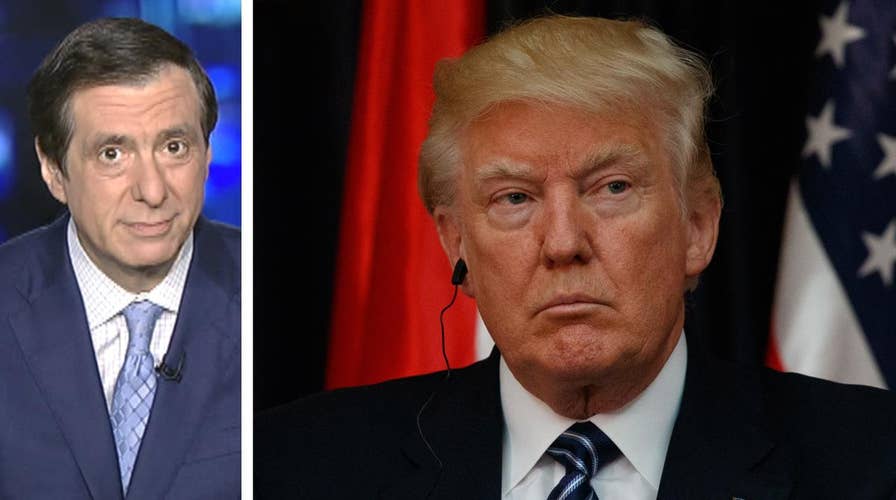Kurtz on Russia scandal: A cover-up without a crime?
'MediaBuzz' host Howard Kurtz weighs in on why the Trump campaign is seemingly 'covering up' any 'collusion' with Russia when no concrete evidence has emerged
The headline in the Washington Examiner was rather eye-catching:
“At This Rate, It Won’t Matter If Trump Colluded with Russia.”
Huh! Won’t matter? Hasn’t that been the subject of a huge swath of media coverage for many months now?
Turns out the piece contained astute observations by Byron York, a Fox News contributor, on how the focus of all the journalistic digging and investigative machinery has shifted.
I’ve long cautioned that, though we don’t know for sure, there may be no there there when it comes to these murky allegations about Donald Trump having “colluded” with Russia. That doesn’t mean that, say, Michael Flynn, who just invoked the Fifth Amendment to avoid testifying on the Hill, doesn’t have problems related to past payments from the Russians.
But Trump himself? Not so far.
As York puts it: “The problem, for the confederation of Democrats, pundits, Obama holdovers, and NeverTrumpers who hoped to see that result, has been that so far, after a lot of investigating, no evidence has emerged that collusion actually occurred.”
If you stop and think about it, the flood of leaks to the press over the last 10 days have mainly involved allegations and suggestions of the president trying to derail the investigation. That’s pretty much been the narrative since he fired Jim Comey.
As York writes, “More and more, day after day, Trump's adversaries believe that, when it comes to bringing down the president, it might not matter if collusion occurred or not. A cover-up would be enough to do the job.”
This sounds rather counterintuitive. Doesn’t there have to be an underlying crime?
In legal terms, no. Lots of people are prosecuted for obstruction of justice, or lying to investigators, regardless of whether they committed any other crime.
But politically, the failure to document any “collusion” with Russia—that wonderfully ambiguous word—would enable Trump to say that his detractors had come up empty.
The latest Washington Post scoop is in the coverup vein. The story says the president “asked two of the nation’s top intelligence officials in March to help him push back against an FBI investigation into possible coordination between his campaign and the Russian government, according to current and former officials.” Trump spoke to Dan Coats, director of national intelligence, and Michael Rogers, head of the National Security Agency, according to the piece, and they refused to comply.
"Pushing back" may not look good, but also wouldn't necessarily be illegal.
Critics say Trump would not be applying such pressure if he had nothing to hide—but that is an assumption, and not based on evidence.
At a House hearing yesterday, former CIA director John Brennan said he was concerned about “contacts and interactions” between the Trump associates and Russia and questioned whether they cooperated wittingly or unwittingly, but he would not elaborate in open session.
No one knows what the special counsel investigation by Robert Mueller will turn up. But we seem to be moving away from the heart of the matter: the notion that Trump was somehow in Putin’s pocket.












































